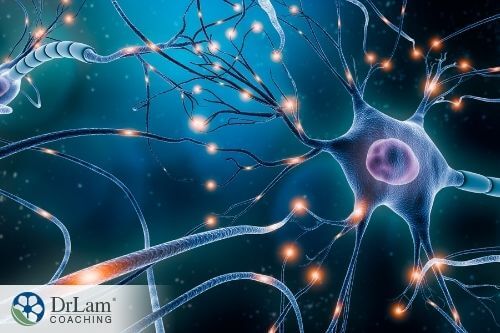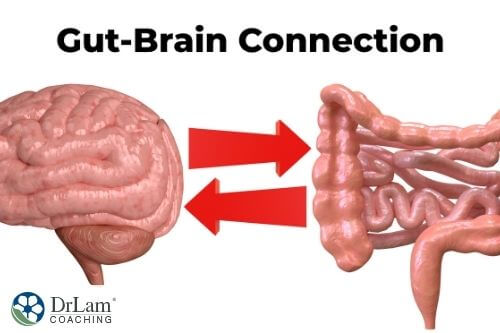Depression is one of the biggest contributors to disability worldwide. Almost 264 million people of all ages are affected by it. And although there are effective therapies for it, such as antidepressants, there are a few obstacles that come with this therapy: Namely antidepressants side effects and how they impact the rest of your system.
Also, there are some therapy-resistant cases of depression where medication doesn’t work. And some cases that, when mild, might not require any medication in the first place.
Although there are many types of antidepressants out there, in this article, we’ll be focusing on three types of antidepressants: SSRIs, SNRIs, and TCAs.
 Before we discuss any antidepressants, we want to mention the most important considerations of antidepressants first. Namely, the increased risk of suicidal thoughts as well as risks to the fetus when pregnant or risks to the baby when breastfeeding.
Before we discuss any antidepressants, we want to mention the most important considerations of antidepressants first. Namely, the increased risk of suicidal thoughts as well as risks to the fetus when pregnant or risks to the baby when breastfeeding.
In children and young adults, there is a risk of developing suicidal thoughts, aggressive behaviors, and self-harm habits when taking antidepressants. In fact, the FDA has issued these drugs its strongest warning short of withdrawing them altogether because of this risk. With pregnant and breastfeeding women, there is a risk that these drugs will affect the baby, and some women choose to stop using them until they give birth or wean their children.
You should take both of these issues into consideration when deciding how to proceed. In some cases, the risk of not taking the antidepressant may be bigger. So, it needs to be an individual decision based on each person’s situation and needs.
SSRIs are selective serotonin reuptake inhibitors. They block the reuptake of serotonin back into the cell that released it. Serotonin is an important neurotransmitter, which is a chemical messenger that helps cells communicate with each other. Serotonin doesn’t just help regulate mood, but also digestion, brain plasticity, and sleep.
When the cell that released it “reuptakes” it, there’s less of it circulating your system. So an SSRI helps stop this reuptake in order to allow more serotonin to circulate and do its job. And although the exact link between the levels of serotonin in the system and depression isn’t understood, the effects have been observed for quite some time.
SSRIs aren’t only prescribed for depression. They can sometimes also be prescribed for different anxiety disorders, PTSD, OCD, and even some hormonal issues, such as hot flashes. Some of the most well-known SSRIs include fluoxetine (Prozac), escitalopram (Lexapro), citalopram (Celexa), sertraline (Zoloft), and paroxetine (Paxil).
Common side effects of SSRIs include:
 SNRIs, which are serotonin and norepinephrine reuptake inhibitors, work similarly to SSRIs. The only difference is that they also block the reuptake of norepinephrine, which is also known as noradrenaline. Norepinephrine is both a neurotransmitter, like serotonin, and a hormone, like cortisol. As a neurotransmitter, it’s stored and released by neurons of the sympathetic nervous system. Remember, the job of a neurotransmitter is to act as a chemical messenger between nerve cells.
SNRIs, which are serotonin and norepinephrine reuptake inhibitors, work similarly to SSRIs. The only difference is that they also block the reuptake of norepinephrine, which is also known as noradrenaline. Norepinephrine is both a neurotransmitter, like serotonin, and a hormone, like cortisol. As a neurotransmitter, it’s stored and released by neurons of the sympathetic nervous system. Remember, the job of a neurotransmitter is to act as a chemical messenger between nerve cells.
As a hormone, it’s stored and released by the adrenal glands. Its main function is to keep you alert and aware, and when you’re facing a stressor, to coordinate your fight or flight response alongside adrenaline.
Some of the most well-known SNRIs include levomilnacipran (Fetzima), venlafaxine (Effexor XR), duloxetine (Cymbalta), and milnacipran (Savella). Like SSRIs, doctors sometimes prescribe SNRIs to treat other conditions, such as anxiety and nerve pain.
Common side effects of SNRIs include many of the SSRI antidepressants side effects, but with a loss rather than a gain in appetite, weight loss more often than weight gain, and constipation more so than diarrhea. They also create fewer sexual side effects than SSRIs.
TCAs, or tricyclic antidepressants, are an older type of antidepressant with a similar action to SNRIs. They increase the levels of serotonin and norepinephrine in your system. But at the same time, they also decrease the levels of acetylcholine, another neurotransmitter. Acetylcholine doesn’t have much to do with mood, so decreasing its levels is purely a side effect. It’s only prescribed when SSRIs and SNRIs are not effective.
Some of the most well-known TCAs include nortriptyline (Pamelor), amitriptyline (Elavil), desipramine (Norpramin), and imipramine (Tofranil). Doctors sometimes prescribe TCAs to also help with nerve damage, nerve pain, anxiety, fibromyalgia, and migraines.
Common TCA antidepressants side effects include some of the SSRI and SNRI side effects, but also:
Less common side effects include:
SNRIs and TCAs are more alike because they work on both serotonin and norepinephrine. And norepinephrine is of particular interest to us when dealing with adrenal fatigue and chronic stress.
All the above-mentioned antidepressants side effects can also happen when you have adrenal fatigue. In fact, Adrenal Fatigue Syndrome (AFS) is frequently misdiagnosed as depression, and mild depression is indeed a symptom of AFS. So it’s important that you understand how these conditions are linked, as well as how antidepressants affect your stress hormones, if you want to get the best chance at resolving any of these issues.
Norepinephrine, adrenaline, and cortisol are key players in your body’s global stress response, called the NeuroEndoMetabolic (NEM) Stress Response. Your NEM has six circuits of organs and systems that work together to fight stress, and they are: The Hormone, the Bioenergetics, the Neuroaffect, the Cardionomic, the Inflammation, and the Detoxification circuits.
Although all of these circuits are involved when you’re facing depression, antidepressants side effects, or any other form of stress, the circuit that’s most pertinent here is the Neuroaffect. It’s composed of your brain, autonomic nervous system (ANS), and microbiome.
Your ANS has different branches. The sympathetic nervous system (SNS) is the one whose cells store and release the neurotransmitter norepinephrine. The SNS is the one that helps ready your body to deal with stress. Then there’s the adrenomedullary hormonal system (AHS), which activates when the stress becomes more severe. And, finally, the parasympathetic nervous system (PNS), which then helps your body return to a state of rest and repair after the stress response is complete.
 As for the microbiome, medical researchers are only just starting to explore its role in depression and other mental health disorders. But so far what we do know about it is quite eye-opening.
As for the microbiome, medical researchers are only just starting to explore its role in depression and other mental health disorders. But so far what we do know about it is quite eye-opening.
When your microbiome is out of balance – a state called dysbiosis – it can lead to a leaky gut. When your gut lining has leaks, substances can enter the bloodstream through them that shouldn’t be there. That triggers an immune response that creates inflammation. Inflammation that becomes chronic can travel from the gut to other parts of the body, wreaking havoc there. If it gets to the brain and nervous system, you can see psychiatric and neurological symptoms develop, including depression, anxiety, and brain fog, to name a few. In addition, the microbiome is key in making the byproducts needed to build neurotransmitters. So that's why the gut is known as the second brain.
Interestingly, one of the positive antidepressants side effects is that they help reduce inflammation. So even though they were not developed to tackle depression in that way, they do help reduce the low-grade inflammation that affects the brain and nervous system and worsening mood.
As we briefly mentioned, many practitioners commonly misdiagnose AFS as depression. And one of the symptoms of AFS is mild depression, as well as anxiety and brain fog. Other symptoms include fatigue, weight gain, sleep problems, hair loss, dry skin, loss of libido, PMS, infertility, heart palpitations, blood pressure issues, hypoglycemia, food and drug sensitivities, and lowered immunity, to name a few.
As you can, many of these symptoms resemble antidepressants side effects as well. And the link between the conditions, their symptoms, and the side effects has to do with the stress hormones and inflammation.
So the next logical step would be to deal with NEM dysregulation and AFS. That may already improve your depression considerably. If it’s mild depression rather than major depressive disorder, it may resolve that way without you needing to take antidepressants. An adrenal fatigue recovery program can help rebalance your Neuroaffect Circuit, reduce inflammation, rebalance your stress hormones, and rebuild your microbiome - making it an excellent option either as a stand-alone program or as an adjunct to other therapies.
But it is of utmost importance that you do not try to deal with any of these conditions without proper medical support. This also goes for weaning off antidepressants in order to reduce their side effects as that can bring on serious withdrawal symptoms along with worsening adrenal fatigue. It is extremely important that, if you are considering weaning off antidepressants, you talk to your doctor about doing it slowly and safely so as not to cause serious relapses or severe side effects.
Antidepressants side effects include sleep problems, weight issues, and sexual dysfunction, to name a few. In some extreme cases, they may trigger suicidal thoughts and self-harming tendencies in younger people. But do the risks of taking them outweigh the risks of not taking them?